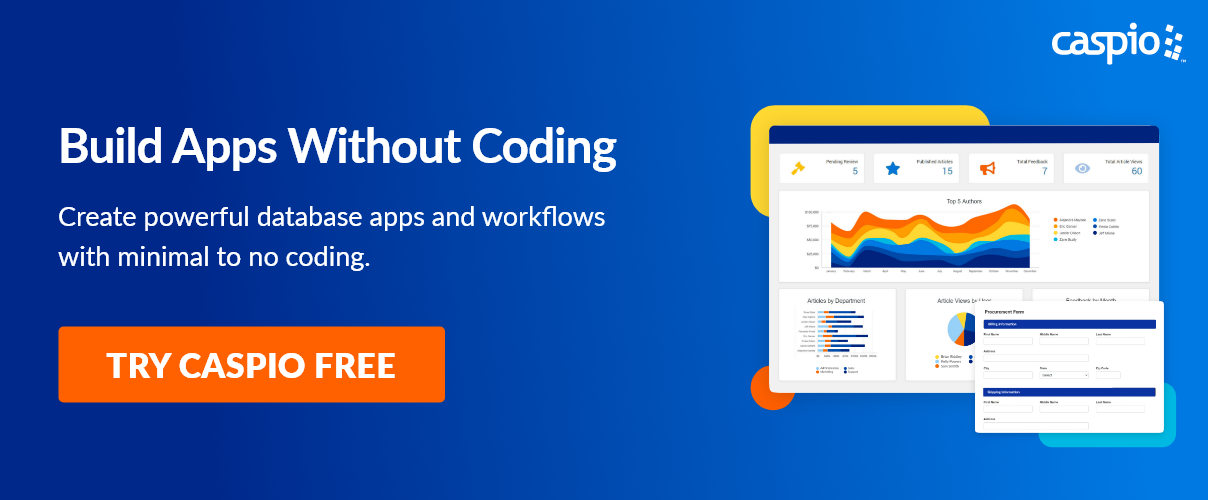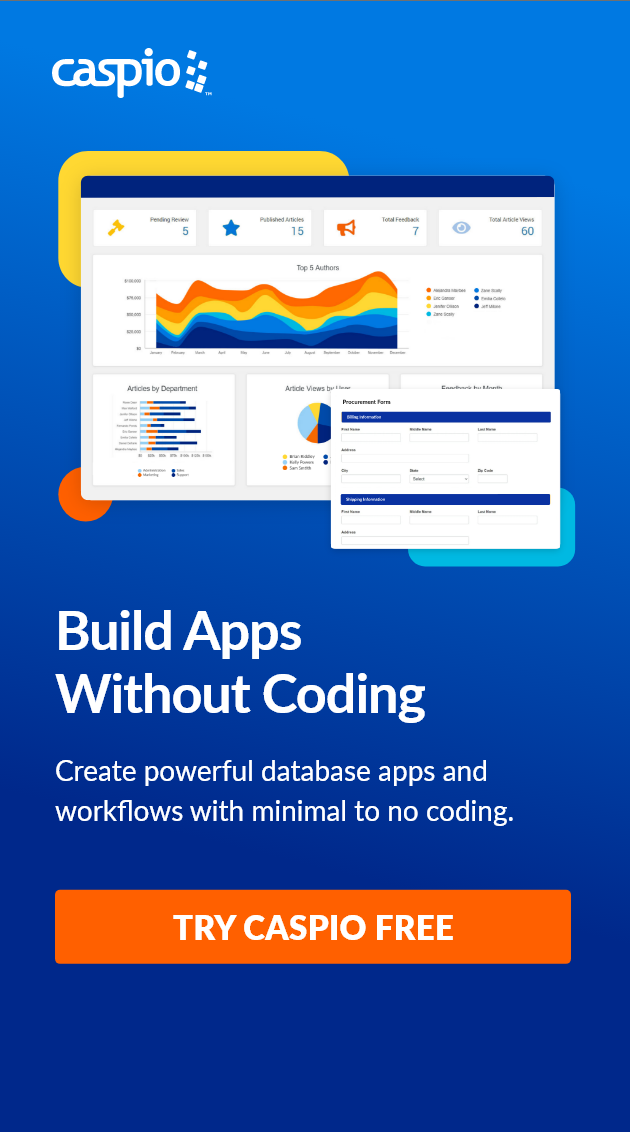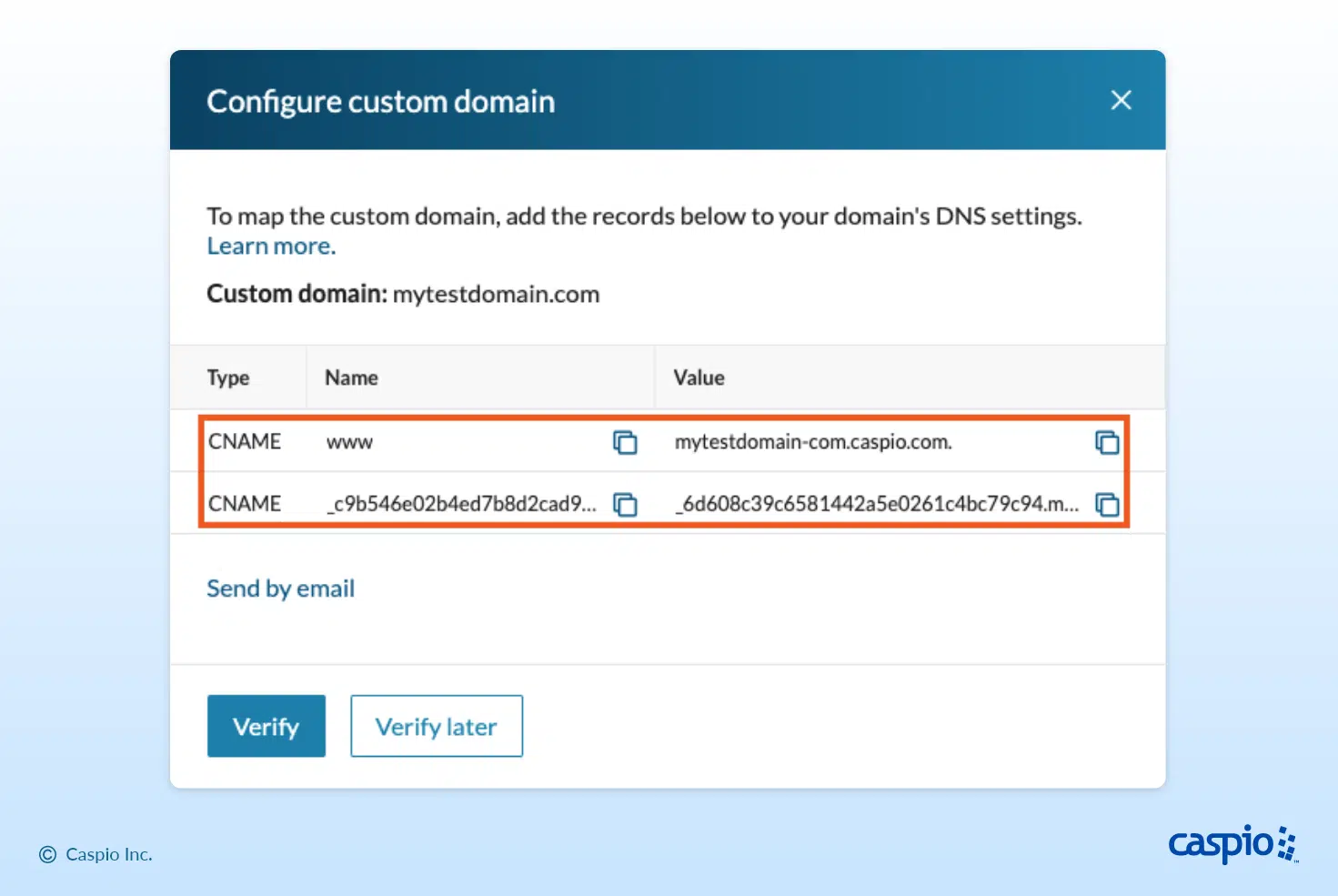Empower Your Brand and Adapt to Browsers With Custom Domains
March 27, 2024

In the vast realm of digital innovation, the concept of a custom domain holds significant weight for businesses seeking to establish a distinct online presence. At its core, a custom domain serves as the unique address of a website, acting as its virtual storefront in the bustling marketplace of the internet.
Unlike generic URLs, which often come suffixed with the name of a hosting platform or service provider, a custom domain carries a brand’s distinct identity, building trust and recognition with the audience. This fundamental element of web infrastructure not only distinguishes one website from another but also plays a pivotal role in shaping user perception and driving engagement.
Before the recent changes in browser policies regarding third-party cookies, Caspio’s approach to empowering businesses with low-code solutions already prioritized custom branding. By allowing customers to embed Caspio-powered applications directly onto their own websites, businesses retained full control over their brand presentation and user experience.
And this is still possible.
As browser policies continue to evolve, Caspio recognized the importance of providing a custom domain feature to help businesses adapt to these changes effectively. With browsers increasingly treating third-party cookies differently, not having a custom domain can pose challenges for businesses seeking to maintain a consistent online presence.
The Third-Party Cookie Transformation
Before diving into the current trends, let’s demystify third-party cookies.
Simply put, third-party cookies are small pieces of data stored on a user’s web browser by a website other than the one they are currently visiting. These cookies are typically used for tracking purposes, allowing third-party entities, such as advertisers or analytics services, to gather information about a user’s browsing behavior across multiple websites.
RECIPE REVAMP: Amidst their power to enrich personalization, growing privacy worries trigger regulatory shifts in third-party cookie implementation.
While they can enhance personalized experiences and targeted advertising, concerns over privacy and data tracking have led to increased scrutiny and regulatory changes surrounding their usage.
Previously, Caspio-embedded apps relied on third-party cookies to manage app user sessions. This helped authenticate users and avoid repetitive logins after page refreshes. However, due to consumer concerns about privacy and tracking, there was a demand to discontinue this practice, as it was exploited by advertisers to monitor individuals across different websites.
Current trends in browser handling of third-party cookies emphasize heightened privacy measures and user control. Major browsers like Google Chrome, Mozilla Firefox, Safari and Microsoft Edge are implementing restrictions to limit tracking by third-party cookies. This includes phasing out or blocking third-party cookies by default and exploring alternative tracking technologies like browser fingerprinting and first-party cookies.
Additionally, browsers are now providing users with greater control over their privacy settings, allowing them to selectively block or delete cookies. These trends align with a broader industry shift towards prioritizing user privacy and safeguarding data online, ultimately leading to increased peace of mind and confidentiality for regular internet users.
As a result, businesses must adapt their strategies to comply with these changes while maintaining effective digital marketing and analytics practices.
Introducing Custom Domains
In the midst of the third-party cookie overhaul in browsers, Caspio had to ensure the integration and functionality of deployed applications, while adapting to the evolving privacy landscape and potential limitations on third-party cookie usage. Cookies set by Caspio were considered third-party by end-users’ browsers due to the embedding of Caspio-powered apps on our customers’ websites.
In an effort to anticipate customer needs and empower their brands to grow, Caspio rolled out Custom Domains.
Launched in December 2023, this feature allows businesses to link their domains directly to the Caspio platform. This ensures that cookies placed by Caspio are recognized as first-party cookies, mitigating issues related to third-party cookie restrictions. Caspio’s response reaffirms its commitment to empowering users with effective solutions, demonstrating its adaptability in the ever-changing digital landscape.
Implementing Custom Domains within Caspio’s platform is simple. Here’s an overview of the process:
- Initiate the process by mapping a domain you own to a default domain assigned to your Caspio account.
- The domain administrator will update the DNS settings to reflect this mapping.
- Once the DNS changes are processed, the domain mapping takes effect.
- As a result, cookies placed by Caspio are designated as first-party, ensuring smooth operation while adhering to newer browser policies.
With this straightforward process, businesses can confidently maintain their brand presence and user experience without worrying about the complexities of third-party cookie handling.
Empower Your Brand With Custom Domains
In this fast-paced environment, the ability to leverage innovative solutions that enhance brand identity and user experience is paramount. Whether it’s navigating changes in browser policies or addressing emerging consumer preferences, Caspio’s commitment to empowering its users with effective solutions has remained unwavering.
As a strategic partner to businesses, Caspio ensures that every aspect of its roadmap and service delivery aligns with this dedication. By introducing features like Custom Domains and offering tailored solutions to meet ever-changing needs, Caspio not only empowers brands but also fosters enduring partnerships with its valued clientele.
Ready to experience the transformative power of Caspio firsthand? Sign up for a free trial and accelerate your path to success.

















